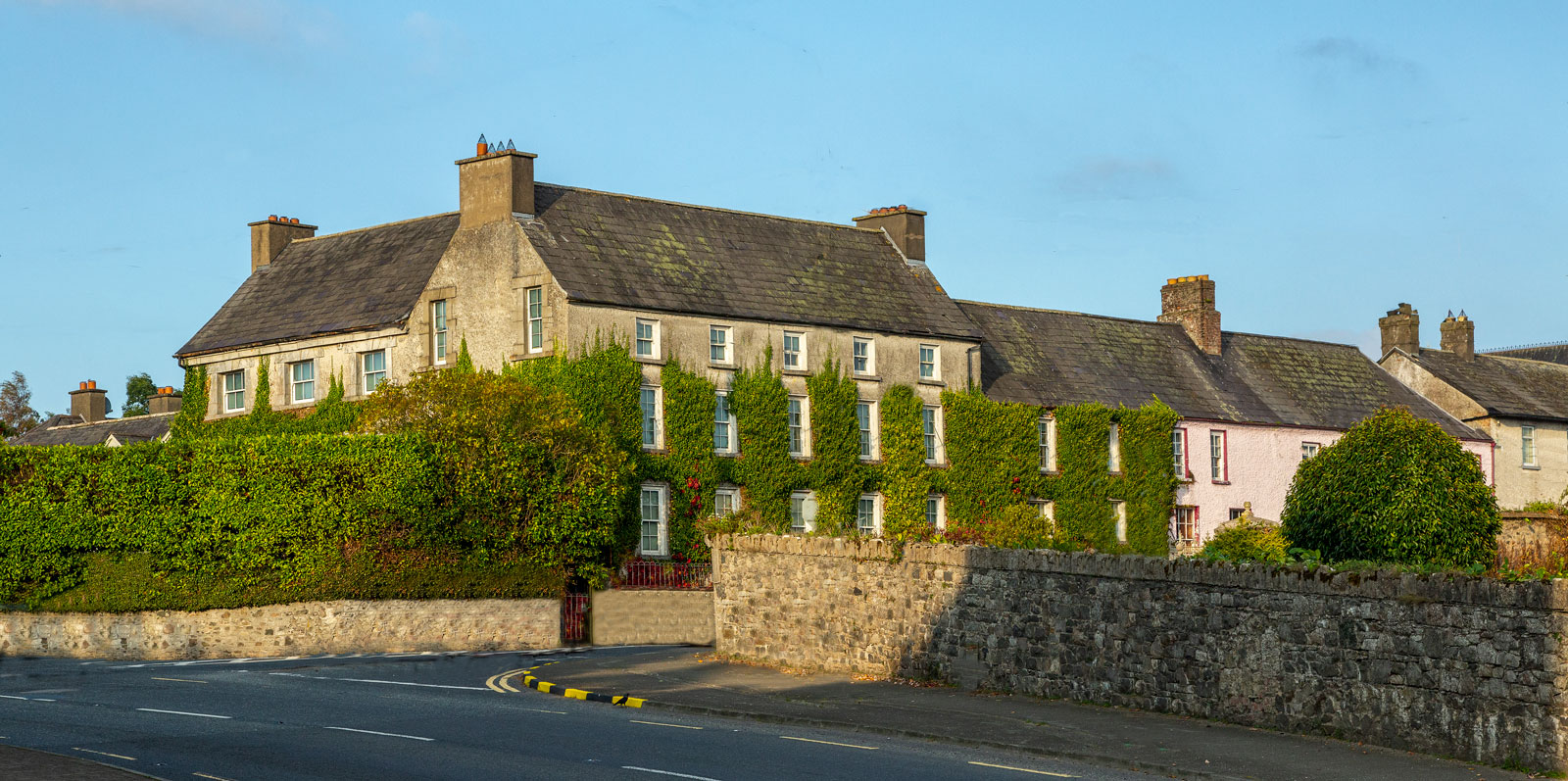Collon House
Anthony Foster, Lord Chief Baron of the Exchequer, purchased the Collon estate in 1740 and chose to build in the centre of the County Louth village, now a market town on the road from Dublin to Derry. His early Georgian house was extended in the 1770s to form a substantial L-shaped dwelling, set back from the street at the central crossroads. The original dwelling is long and low but the later building is taller and more generous in scale with more elaborate interiors and a “handsome half-turn stair” that gives access to the upper floors.
Anthony’s son John was elected to the family borough of Dunleer and became the member for Louth in 1768 at the age of twenty-one. Considered ‘the best informed man in the house’ he was briefly Chancellor of the Irish Exchequer before his election as Speaker of the Irish Commons. He held office from 1785 until 1800, when Parliament was dissolved for ever under the Act of Union, a measure which Foster had strenuously opposed. As Speaker he pronounced the final words at the closing session, choosing to retain his official mace ‘for future contingencies’. Mr. Speaker Foster was returned to Westminster after the Union and was finally rewarded with a UK peerage in 1821 (his wife had previously been granted two Irish titles) after an illustrious political career that spanned more than sixty years.
In 'A Tour of Ireland' published in 1780, the agronomist Arthur Young mentions Foster whose improvements on the Collon estate “were of a magnitude that I have never heard of before.” These included Oriel Temple, an elaborate and chastely classical lakeside folly, which was subsequently enlarged to form the principal family seat. Foster’s son Thomas married an heiress, Harriet Skeffington, and the family moved to Antrim Castle when she succeeded as Viscountess Massereene.
Collon House has been altered over the intervening years but the building retains many fine Georgian interiors, now greatly enhanced by sympathetic restoration, fine furniture, glass, porcelain, pictures and objects. Their rich decoration makes a striking contrast with the plain exterior.
The gardens have also been restored with inspired and authentic planting. The entrance overlooks a sunken garden with an intricate box parterre, while the herbaceous border in the ornamental garden leads to a classical summer house in the Grecian style.
Address & Contact
Collon House, Ardee Street, Collon, Louthm: +353 87 235 5645
e: collonhousereception@gmail.com
Available as a Film Location
Houses and Garden
Groups by Arrangement
Culture and Education
Concerts, Plays or Recitals
Accommodation and Short Breaks
Overnight with Dinner
Events
Meetings or receptions
Activities
Looped Walks
Opening Details
Open all year round
Please contact the owners for details


